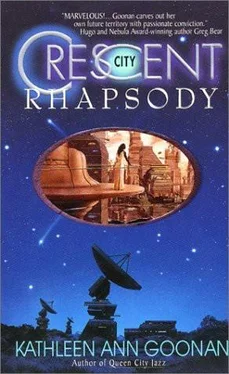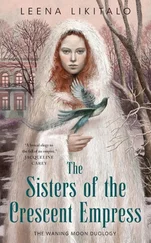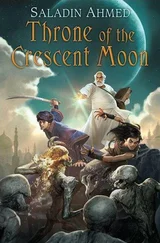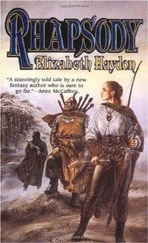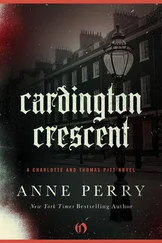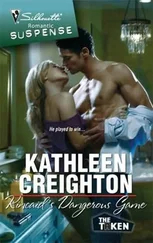And Annie. He was sure the woman in the front of the car was Annie. He thought he heard her yelling for him but the mob pushed him back toward the rear exit. The sprinklers came on and soaked them. Musicians cursed and tried to shelter their instruments as they scrambled from the train.
Marie watched the scene in horror, pressed against the balcony railing by the crowd behind her.
A maglev train approached on the old L&N tracks, roaring and spitting sparks and surely moving too fast to stop without plowing through the crowd. Its snub stainless-steel nose glinted as it shot through the corridor of streetlights lining the tracks. Waves of people pushed back in a great pulsing mob.
Amazingly, the tracks were cleared just in time. The massive train halted next to the recently deserted stage. It was battered and mud-splattered. The second car was almost completely destroyed.
All was eerily silent.
Marie waited for the soldiers to come leaping from the doorways.
Instead, a conductor jumped from the rear door of the third car and placed an iron stool on the pavement.
After a moment, a man wearing a shining white tuxedo and a white top hat stepped down, holding a baton. He smiled and waved a white-gloved hand, then walked toward the stage. The crowd pushed back to allow his passage.
Then a woman in a white evening gown was helped down by the conductor. She paused and waved at the crowd, then followed the man in the white tuxedo.
More men, all wearing black tuxedos and carrying trumpets, saxophones, clarinets, and trombones, stepped down from the train and made their way to the stage. The white-tuxedoed man had spoken to someone and folding chairs were hastily carried onstage and set up. The musicians seated themselves.
“Ladies and Gentlemen,” said the white-gloved man. His voice rang out clearly. He had the full attention of the crowd. “My name is Duke Ellington, and this is my orchestra. We are honored to be here, and of course, we love you madly. We would like to play for you a piece commissioned by Marie Laveau. We hope that she finds it suitable. And we hope that all of you will enjoy it tremendously. It is entitled Crescent City Rhapsody .”
Primal, isolate, opening notes sounded, fifths of stacked clarinets and trombones. The effect was eerie. The lights of the city dimmed, as if someone had their hand on a switch.
The piece grew like an embryo or like a proof, building on itself. Rhythm pulsed through saxophones used as a bass anchor. Cornets blared in syncopated counterpoint to the saxophones, then both intertwined in a dizzying fashion and flew off on their own trajectories. The woman’s voice rose above it all: piercing; haunting.
And then the piece moved from portmanteau to body. The band began to swing with a strange powerful rhythm. It seemed unbalanced, falling-forward, yet was superbly—if barely—contained by an arrangement of sheer genius. It created a sound as shattering as that of Charlie Parker and Dizzy Gillespie when they blew the first fast riffs of bop, as strange and new as Coltrain’s sheets of sound. A scream rose from the crowd at its sheer audacity and spirit, and everyone broke into dance.
Kita, standing on the balcony, shouted, “That’s it! That’s it! How did they know?”
Hugo, standing next to her, said, “Perfect. Absolutely perfect.”
Jason said, “I’ve heard this before.” Then he slipped away. Kita saw him a moment later, dancing with the crowd below the balcony.
Zeb was ejected into a scene as bizarre as any that he might have imagined in recent years. It was so hot he thought he might faint; within seconds, he wanted nothing so much as to plunge into a tub of ice water. Dazed by lights and trembling in the aftermath of the explosions, Zeb shielded his eyes with his hands. There seemed to be a square in front of him, and Ellington was performing. The roar was overwhelming, comprised of voices joyful and angry, irritated and ecstatic. The people, in constant motion, looked bizarre, costumed in brilliant clothing that seemed much too hot to wear. The momentum of the mob shoved him forward.
Zeb found himself chanting with all the rest, their voices pulled forth in imperative sequence, part of the piece, as if in a channel determined by the deft composition. He was hoarse, ecstatic, and everyone was dancing, dancing in the streets.
But this was different than his years of madness. He was lucid, utterly clear. He was becoming clearer by the second, as if his mind and being were in reverse, moving with great rapidity back to that time of fierce correct intensity before he was felled by a biochemical twist of fate. He experienced an explosion in reverse, the shards of his being pulled back from the years in which they had embedded themselves, yanked by a magnetism begun by that woman in black only a week earlier…
The horns rang out his freedom. The orchestra swelled to a sweet singularity that lasted but a second, then rayed out in timed perfection into a new universe. Zeb was swept into it as on the crest of a wave inexorably nearing a shore.
He staggered, found his feet, and reentered Eden, tears streaming down his face, hugging some stranger who hugged him back, weeping equally.
“Damn, he’s good,” said the man, breaking the embrace and disappearing into the crowd.
Zeb swayed, infused by truth, then stood firm and gathered the lost years to him.
Cut Face and Shorty, commanded by Marie to go forth and celebrate, walked up Bourbon Street at about three in the morning, dropping into yet another bar and settling on stools. Shorty held up two fingers and they wrapped their hands around cold ales. The music was not all that loud in this dark room, but the band—an electric guitar, a drummer, and a bass—repeated the Ellington rhythm, which always seemed new because of its irregularity.
Shorty said, “How you be feeling?”
Cut Face took a sip of his ale. “Why you ask?”
“Because I be feeling—I don’t know. Different.”
“Yeah. Me too. Kind of like—I don’ care what Marie say.”
“You t’ink we free at last?”
Cut Face said, “Who knows it feels it, brah.”
“Jah be forgiving us. Praise be.”
They clinked glasses.
Hugo, minus his jacket and vest and sandals, leaned against the high carved footboard of Marie’s mahogany bed; she sat crosslegged at the headboard. Between them a six-inch-high table sat on the bed. On it was a bottle of iced vodka, two glasses, caviar, toast, chopped eggs, and butter. They were stuffing themselves and laughing. Ellington’s music was a distant backdrop.
“This is heaven!” said Marie.
“This is alcohol,” replied Hugo. “Alcohol and caviar.”
“Same thing to me.” Marie slathered more caviar on toast and squeezed lemon on it. After she swallowed it, she said, “Why didn’t you write?”
“I did. Many times. International mail is nonexistent now. I sent all kinds of messages. I got kind of laid up in Japan.”
“I’ll bet,” said Marie.
“No, really. I had a serious injury. Want to see the scar?”
Marie held up both hands and screwed up her face in mock horror. “No thanks! But your healers worked? You don’t really have scars, do you?”
“It was touch-and-go for a month or so. But I pulled through.” He laughed. “I’ll tell you what, Marie. It’s damned weird out there. I think you’re right. It’s the end of the world.” He sighed.
“Tell me about Tamchu. What’s he wearing around his neck?”
“I’m surprised you noticed in all the hubbub.”
“I’ve got sharp eyes. Hugo, what’s happening in Paris? All we have are rumors. What does Kita know?”
“Just calm down. I’ll fill you in on everything. If you’re nice. You look terrible. Mind telling me why?”
Читать дальше
